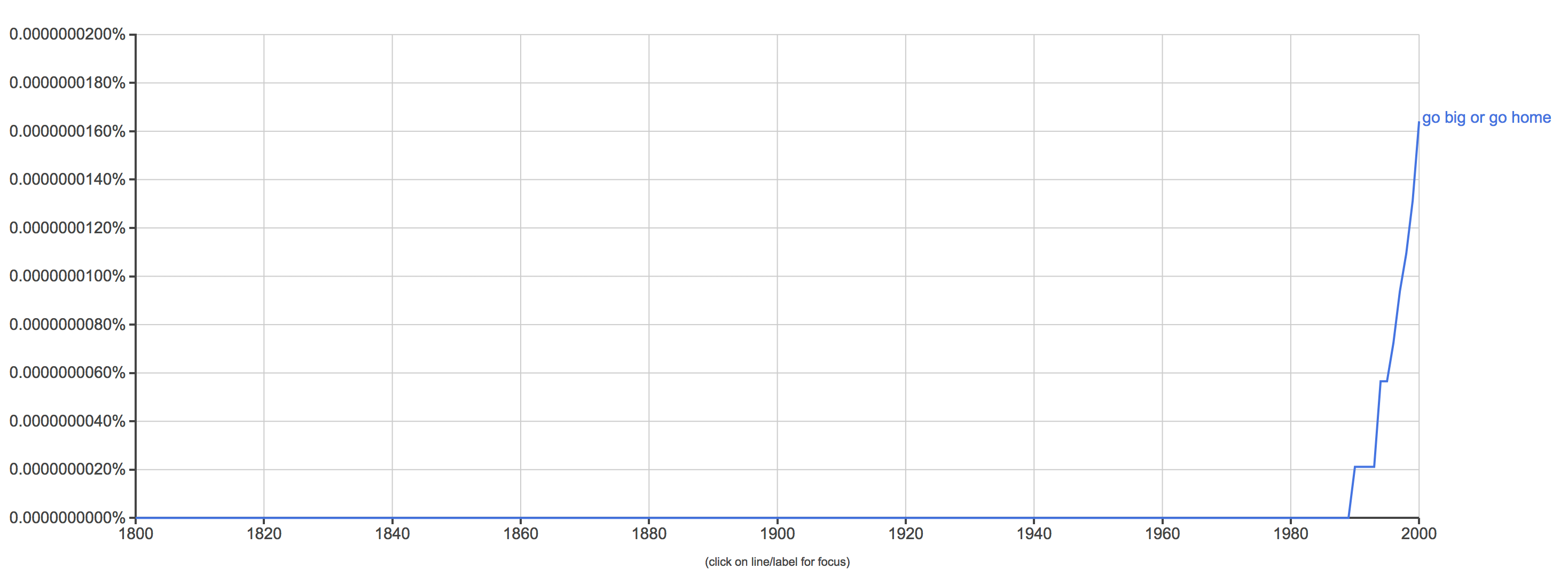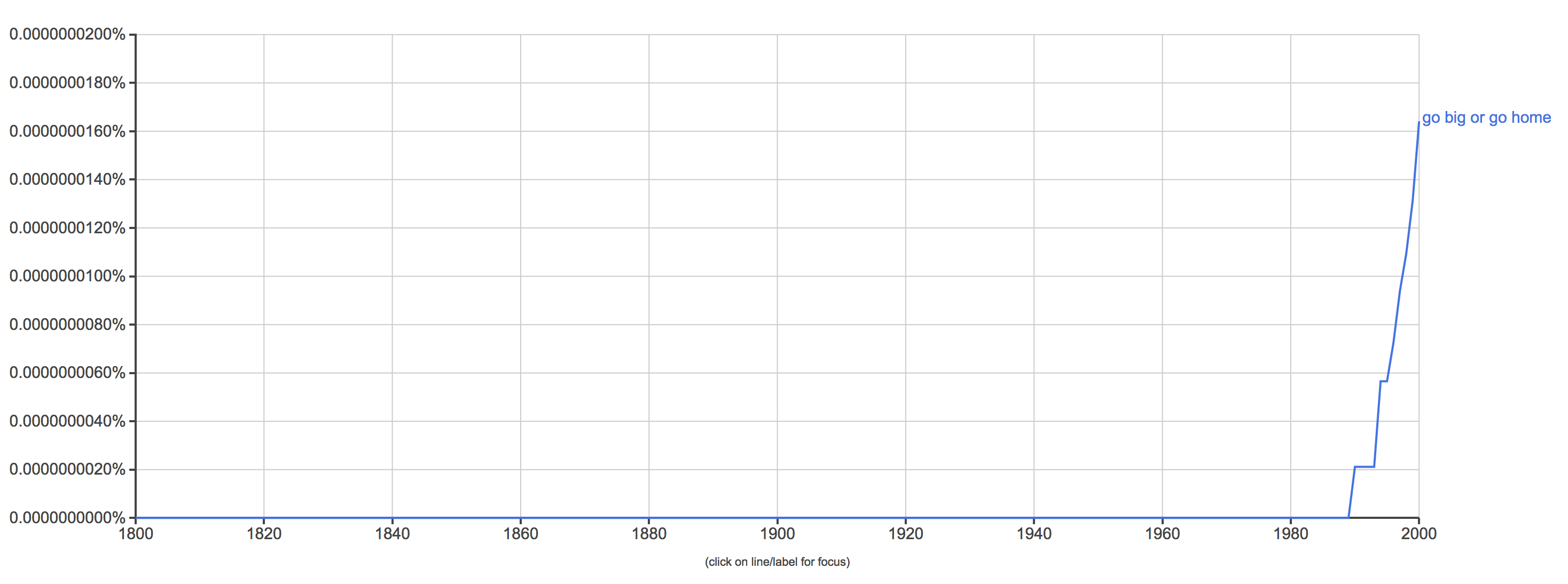
I’ve been in Y Combinator twice. I’ve been running my own businesses for over 12 years. So I’ve been around quite a few people who didn’t get the inflection point they wanted after trying to start the next ‘billion dollar company’, so packed it up, and quit the game. Does it really have to be like that?
In 1992, a young kid got lucky. He was in the right bar at the right time and met a casting director who launched his acting career. It turned into quite a decent career.
But there was a problem.
He was quickly typecast. Every single movie he was in had the same formula of having our actor showcase his charm and good looks. The paycheck was great, but it wasn’t any fun.
Then… he disappeared.
For two years, after what first looked like the peak of this actor’s career, he wasn’t in anything. The scripts dried up. People stopped sending him things. They got the message he was sick of the formulaic role that had been making him and the studios a lot of money. And studios like to make a lot of money.
It didn’t help that his final project before his disappearance had a 28% Rotten Tomatoes score. Ebert mentioned: “The potential is here for a comedy that could have been hilarious.” This isn’t the film you want to start your walkabout after.
If they’re like this, we’re in deep shit. That’s why you book your next job before the movie comes out.
-Ari Gold
But, finally after a few years of obscurity, the director who started his career had a project. It was different. He’d get to be different. The problem: it didn’t pay well. The budget was 1/7th the budget of his dud movie he left with in 2009.
What does he do?
“Go big or go home” didn’t become part of our lexicon until the 1990’s

Since then, that expression permeates far too many projects and people’s careers. I don’t know if it’s because of some misplaced “artistic integrity” or psychological desire to complete sets of things that makes us want Everything from our project or nothing at all. But it’s a terrible thing that afflicts too many good ideas. Ideas that, for whatever reason, are small. They have small budgets. They aren’t billion dollar unicorn businesses. They don’t have exponential hopes. So people abandon these great ideas because the biggest payoff isn’t possible.
Our actor takes some of these oddball low budget movies. He does a string of them from 2011–2013. And to offset, he gets some commercial work. The commercials are a little weird. He’s made fun of. When someone asked him about the flak he gets about the commercials:
Fuck that. Because I’m going to. And I like ’em. And they pay well. And they allow me to go and do these other little movies for a lot less.
Not everything we do needs a Go Big or Go Home mindset. There are ways to incorporate the smaller ideas. Your business is profitable but doesn’t make the exorbitant sum you were expecting? Don’t shut it down. Start another business. Do some consulting. Treat it as a side hustle.
A favorite vlogger of mine is Charli Marie. In a recent video she and Matt Ragland talk about side hustles. Charli is involved with a bunch of side hustles. She’s putting all this work into her YouTube channel. She has a merchandise store of great stuff she’s designed. But she also works full time as a designer for ConvertKit, a company she’s not the owner of.
If Charli had an attitude like too many of the Go Big or Go Home folks she’d have so much less of these projects, and she’d be miserable. Instead, she’s not a billionaire, but she’s in a place most people would love to be. If only they could drop the Go Big or Go Home mindset.
Like our actor friend.
In 2014, he finds himself onstage saying “Alright alright alright”, a line from his very first movie, and thanking a host of people for the award he won for his role in the low budget success of Dallas Buyers Club. It was Matthew McConaughey’s first Oscar.
P.S. You should follow me on YouTube: youtube.com/nathankontny where I share more about how we run our business, do product design, market ourselves, and just get through life. And if you need a zero-learning-curve system to track leads and manage follow-ups, try Highrise.


